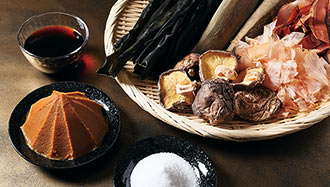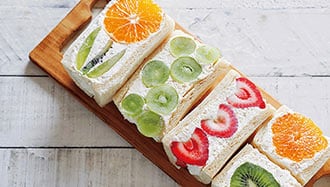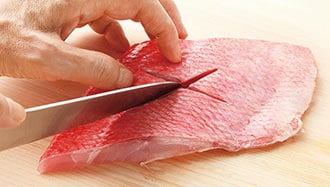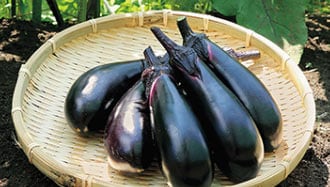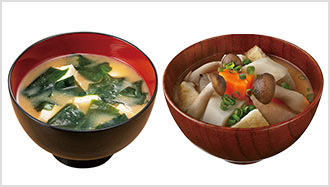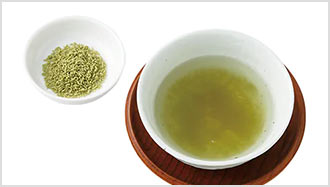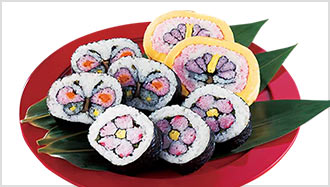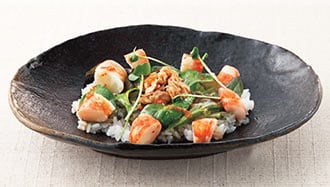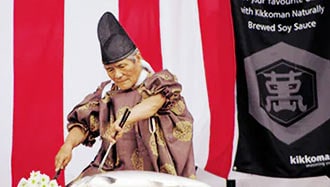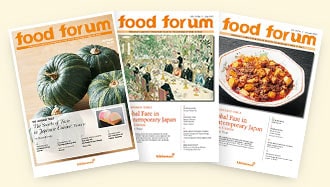

Traditional Japanese kobucha or kombu (kelp) tea is made using granules of fine-ground dried kombu seasoned with salt, or with small, lightly salted pieces of kombu. Kombu contains iodine. Though referred to as “tea,” kobucha is unlike green tea or other teas prepared by infusing tea leaves, and is completely different from “kombucha,” a popular drink in the West produced by fermenting sugared tea with a culture of lactic acid bacteria. Kobucha’s origins are not well-documented, but it has been consumed since medieval times, prepared by pouring hot water over dried, chopped-up kombu; afterwards, the leftover kombu was eaten. “Kombu” rhymes with “yorokobu,” implying happiness or celebration; thus obukucha is served on New Year’s Day, made by pouring hot water over a piece of knotted kombu and an umeboshi pickled Japanese apricot. Kobucha granules, said to date from about 1920, make it convenient to enjoy at home. The granules are also used in cooking, to impart umami.




